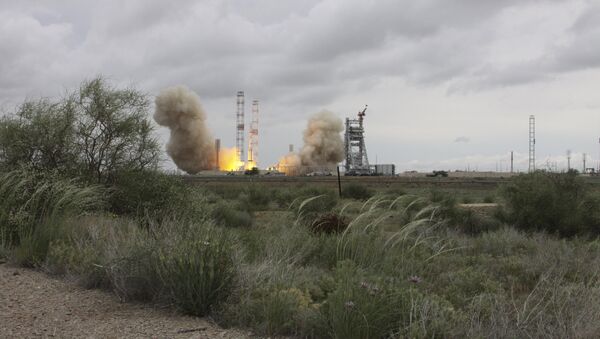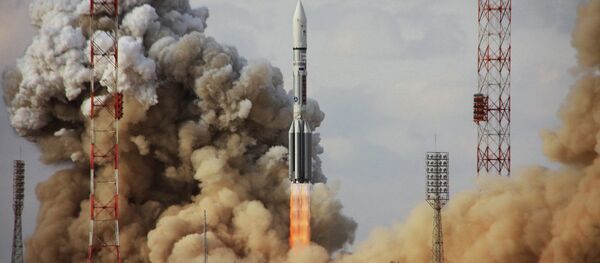On Saturday, a planned correction of the ISS orbit could not be carried out after the Progress M-26M's engines failed to start on time. In an unrelated incident just hours later, an emergency situation occurred with the Russian Proton-M rocket carrying a Mexican communication satellite shortly after its launch. The satellite did not detach and was declared lost.
“It [the accident] is absolutely similar to what happened in 1988 and last year, there was a malfunction in the same system.”
In May 2014, another Proton-M launch was unsuccessful when the rocket suffered a third stage failure that ended in the loss of the Russian Ekspress telecommunications satellite. Comparisons were quickly drawn between last year's accident and one that occurred in 1988, when a Proton-K rocket suffered a third-stage engine failure.
The deputy prime minister said that it was “a matter of honor” to establish the reason why this flaw was made on several occasions.
“Greater responsibility and consolidation of the industry, as well as its technical modernization, are vital preconditions for keeping our [leading] position,” Dmitry Rogozin said at a meeting with Russian Prime Minister Dmitry Medvedev.
“We cannot continue launches until this primary flaw is established,” the minister said. “And, of course, we need to speed up the transition to modern carrier rockets of the Angara family and gradually retire the Protons.”



